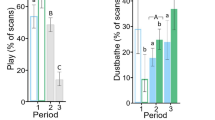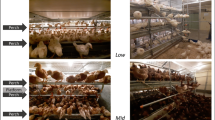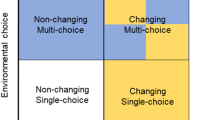Abstract
KING1 recently reported that a combination of restricted lighting during rearing and increasing lighting during the laying season results in increased egg production in laying pullets. Morris and Fox2 have suggested that sexual maturity is influenced by change of length of day rather than by the absolute amount of light the birds receive during rearing. They have already published interim results3 of an experiment which supports this contention. Their experiment also shows that decreasing lighting during the rearing of pullets hatched in December delays maturity, increases weight of eggs, but does not lower total egg production during the first sixteen weeks of lay.
This is a preview of subscription content, access via your institution
Access options
Subscribe to this journal
Receive 51 print issues and online access
$199.00 per year
only $3.90 per issue
Buy this article
- Purchase on Springer Link
- Instant access to full article PDF
Prices may be subject to local taxes which are calculated during checkout
Similar content being viewed by others
References
King, D. F., Poultry Tribune, Feb., 15 (1958).
Morris, T. R., and Fox, S., Nature, 181, 1453 (1958).
Morris, T. R., and Fox, S., Nature, 182, 1522 (1958).
Author information
Authors and Affiliations
Rights and permissions
About this article
Cite this article
BOWMAN, J., ARCHIBALD, J. Effect of Controlled Lighting on Production Characters in the Fowl. Nature 183, 1138–1139 (1959). https://doi.org/10.1038/1831138a0
Issue Date:
DOI: https://doi.org/10.1038/1831138a0
Comments
By submitting a comment you agree to abide by our Terms and Community Guidelines. If you find something abusive or that does not comply with our terms or guidelines please flag it as inappropriate.



